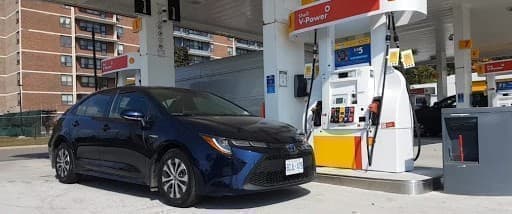Most Toyotas in the United States will still use gasoline in 2030, the carmaker said on Wednesday, expecting gasoline and hybrid cars to still be more convenient to customers than fully-electric vehicles in ten years’ time, unlike some of its competitors that have already vowed all-electric lineups by 2035 or 2040.
Toyota expects more than half of its vehicles sold in North America to be plug-in hybrid vehicles in 2030, some 30 percent to be conventional cars running on gasoline, and the remainder to be fully electric vehicles.
“If you take a snapshot of 2030, the price of battery EVs and the provision of infrastructure around the globe probably won’t have advanced all that much,” Jun Nagata, Operating Officer at Toyota, said at a news conference Wednesday, as carried by The Wall Street Journal.
According to the executive, hybrids and plug-in hybrids will be more convenient for customers, even in 2030.
Toyota is heavily investing in hybrid technology and in hydrogen fuel cell technology, and although it has recently announced a range of fully electric vehicles, it continues to believe that BEVs will still generate emissions because of the electricity used to charge them.
“Even with perfect battery technology, a BEV will still generate tons of CO2 emissions over its lifetime if it is charged by electricity produced by coal or other non-renewable energy sources,” Toyota’s Chief Digital Officer James Kuffner said on news conference today.
“Another challenge is that not everyone has convenient access to charging infrastructure,” Kuffner said.
Last year, Toyota’s President Akio Toyoda said that there was too much hype surrounding EVs, noting that the electricity needed to charge electric cars would strain grids and increase carbon emissions.
Toyota’s view on EVs differs from that of many other major automakers, including its domestic Japanese competitor Honda, which pledged last month to sell only battery-electric vehicles and fuel cell electric vehicles (FCVs) globally by 2040.
In the United States, GM committed in January to eliminate all tailpipe emissions from new light-duty vehicles by 2035 as part of a wider strategy to become a carbon-neutral business by 2040.
By Tsvetana Paraskova for Oilprice.com
More Top Reads From Oilprice.com:
- Oil And Gas Rig Count Climbs Amid Price Rally
- Oil Markets Optimistic As Brent Flirts With $70
- Big Oil Eyes Wave Of Buybacks After Blowout Earnings



















But when Akio Toyoda, the President of Toyota, the world’s biggest car company, says there is too much hype surrounding EVs and also notes that the electricity needed to charge electric cars would strain grids and increase carbon emissions, the world should listen attentively.
The announcement by Toyota that most of its US cars will still run on gasoline in 2030 is a real damper for EVs in the US market and probably the world.
Dr Mamdouh G Salameh
International Oil Economist
Visiting Professor of Energy Economics at ESCP Europe Business School, London
Note also that Tesla aims to produces 20 million BEVs in 2030. This will be a 20% to 25% share of the entire auto market. VW will likely retain about 11% market share offering mostly EVs. In 2030, Toyota will look painfully obsolete and will have lost most of its market share.